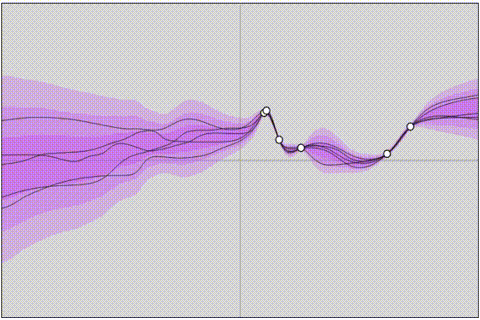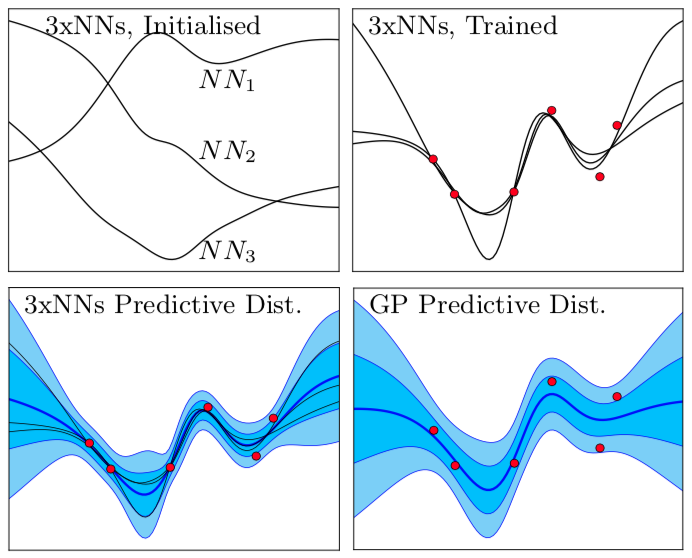Code from paper 'Uncertainty in Neural Networks: Approximately Bayesian Ensembling' - https://arxiv.org/abs/1810.05546
Play with the interactive demo here. See how it compares to dropout here.
notebook_examples provides lightweight demo code for a Bayesian anchored ensemble in PyTorch / Keras / Tensorflow for regression and classification.
- script_methods.py - this creates figure 4 of the paper, running 1-D regression example for GP, MC dropout, and Anchored Ensemble. Due to compatibility issues with Edward, HMC and VI are now handled elsewhere.
- pymc_HMC_VI.py - creates VI and HMC plots for figure 4 of paper.
- main_exp.py - runs UCI benchmarking experiments.
- main_converge.py - runs convergence comparison between GP and anchored ensembles as in figure 7 on Boston dataset.
- script_anch_need.py - creates regression portion of figure 6, showing why anchored ensembles is a better approximation of the Bayesian posterior than other ensembling methods.
- 2d_class_need_03.py - creates classification portion of figure 6.
- 2d_anch_plots_algorithm.py - creates visualisation of the algorithm in figure 2.
- 2d_post_comparison.py - creates visualisation of the posterior comparison made in figure 3 between analytical, RMS and MFVI.
- DataGen.py - handles data set generation or read in.
- hyperparams.py - holds hyperparameters used in UCI benchmarking.
- utils.py - handles some plotting and support functions.
- module_gp.py - code behind the equivalent gaussian processes.
- module_NN_ens.py - code for anchored ensembling, includes the regularisation around initialisation values (the ‘anchor’ method). Is only set up for single or double layer fully connected NN.
Below are the package versions used in writing the code.
Python 3.7.0
tensorflow
'1.12.0'
numpy
'1.15.3'
matplotlib
'3.0.1'
sklearn '0.20.0'
pymc3
'3.5'
theano (use with pymc3) '1.0.3'

